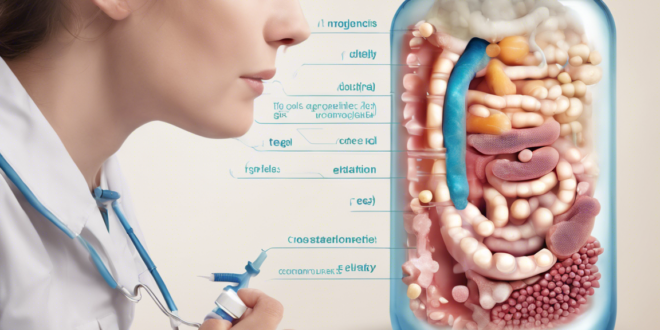The Role of Probiotics in Gut Health: A Comprehensive Guide to Digestive Wellness
In recent years, the importance of gut health has become a focal point of medical research and personal wellness strategies. At the heart of this discussion are probiotics – beneficial microorganisms that play a crucial role in maintaining a healthy digestive system and overall well-being. This comprehensive guide will explore the intricate world of probiotics, their impact on gut health, and how you can harness their potential to improve your overall quality of life.
Understanding Probiotics: The Basics
Probiotics are live microorganisms that provide numerous health benefits when consumed in adequate amounts. These beneficial bacteria are naturally found in the human digestive system and can also be obtained through fermented foods and dietary supplements. They are often referred to as “good” or “helpful” bacteria because they help maintain a balanced and healthy gut microbiome.
The Gut Microbiome: A Complex Ecosystem
The human gut is home to trillions of microorganisms, collectively known as the microbiome. This complex ecosystem consists of bacteria, viruses, fungi, and other microbes that play a critical role in various bodily functions. A balanced microbiome is essential for:
- Digestion and nutrient absorption
- Immune system regulation
- Hormone production
- Mental health and cognitive function
Health Benefits of Probiotics
Research has demonstrated that probiotics offer a wide range of health benefits beyond digestive health. Some of the most significant advantages include:
1. Digestive Health Improvement
Probiotics can help alleviate various digestive issues, including:
- Irritable Bowel Syndrome (IBS)
- Inflammatory Bowel Disease (IBD)
- Diarrhea
- Constipation
2. Immune System Support
Approximately 70% of the immune system resides in the gut. Probiotics help strengthen immune responses by:
- Producing natural antibodies
- Boosting immune cells
- Reducing inflammation
3. Mental Health and Cognitive Function
The gut-brain axis is a bidirectional communication system between the digestive system and the central nervous system. Probiotics can potentially:
- Reduce symptoms of anxiety and depression
- Improve mood regulation
- Enhance cognitive performance
Best Probiotic Sources
There are multiple ways to incorporate probiotics into your diet:
1. Fermented Foods
- Yogurt
- Kefir
- Sauerkraut
- Kimchi
- Kombucha
2. Probiotic Supplements
When selecting a probiotic supplement, consider:
- Strain diversity
- Colony Forming Units (CFUs)
- Manufacturer reputation
- Storage requirements
Potential Risks and Considerations
While probiotics are generally safe, some individuals might experience:
- Mild digestive discomfort
- Allergic reactions
- Interactions with medications
It is always recommended to consult with a healthcare professional before starting any new supplement regimen, especially for individuals with compromised immune systems or underlying health conditions.
Conclusion: Embracing Probiotic Wellness
Probiotics represent a powerful tool in maintaining optimal gut health and overall wellness. By understanding their benefits, sources, and potential impacts, individuals can make informed decisions about incorporating these beneficial microorganisms into their daily lives.
Remember, a holistic approach to health involves a balanced diet, regular exercise, stress management, and proper nutrition. Probiotics are just one piece of the complex puzzle of human health and well-being.
 Good Calories Guide GoodCalories Guide focuses on nutrition, healthy eating, and overall wellness. The site offers practical insights into evidence-based dietary practices, including tips for specific lifestyles such as veganism, keto, and family-friendly meal planning. It also addresses unique nutritional needs for individuals with conditions like diabetes or food allergies, while providing quick and accessible recipes to make healthy living a sustainable and enjoyable choice.
Good Calories Guide GoodCalories Guide focuses on nutrition, healthy eating, and overall wellness. The site offers practical insights into evidence-based dietary practices, including tips for specific lifestyles such as veganism, keto, and family-friendly meal planning. It also addresses unique nutritional needs for individuals with conditions like diabetes or food allergies, while providing quick and accessible recipes to make healthy living a sustainable and enjoyable choice.


